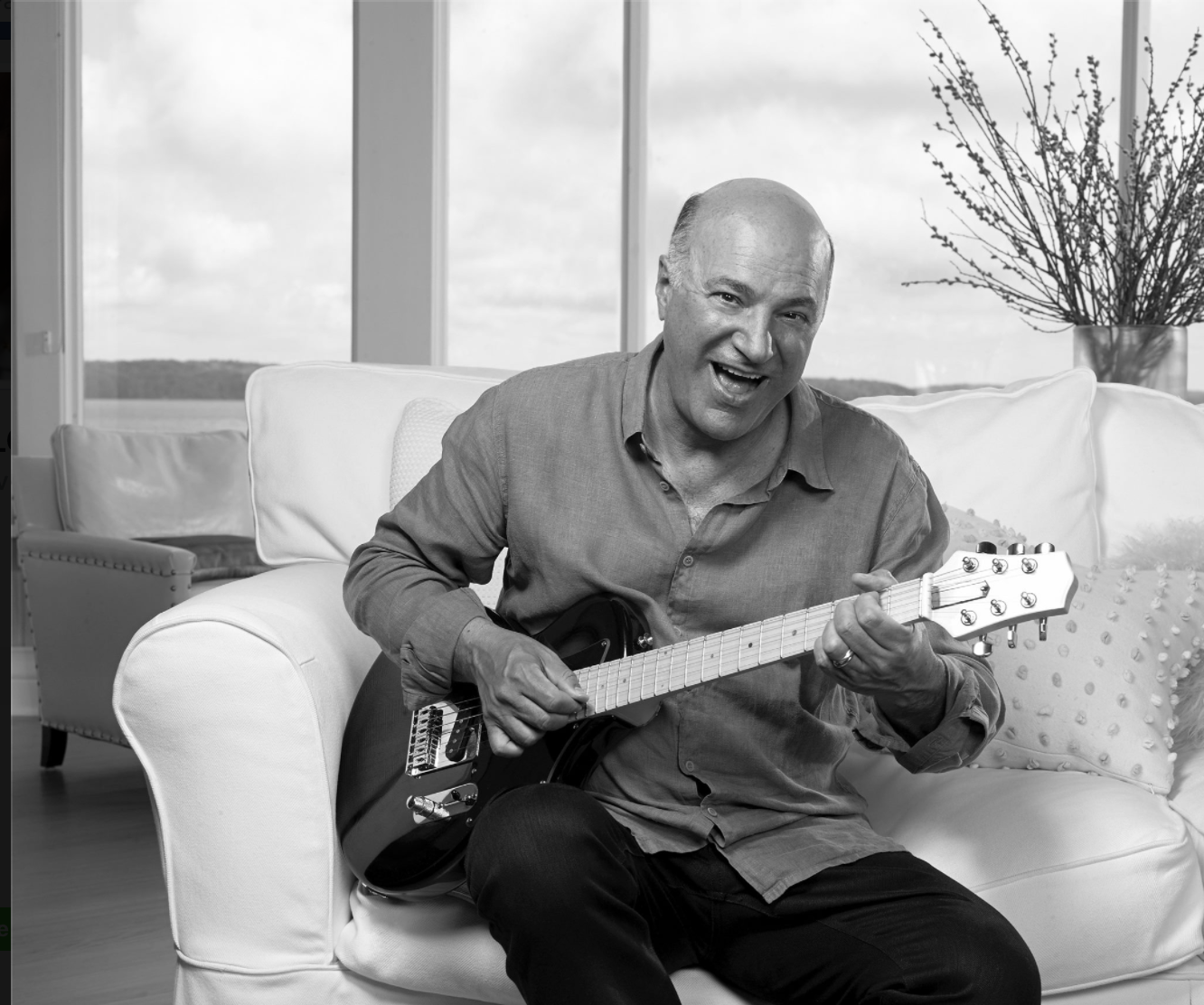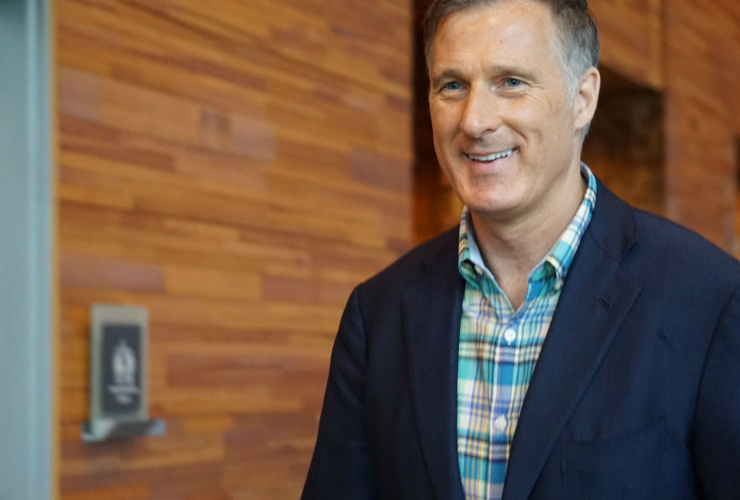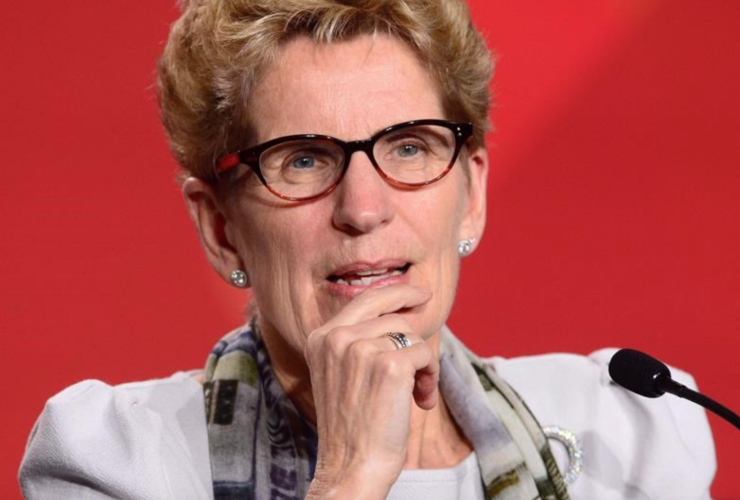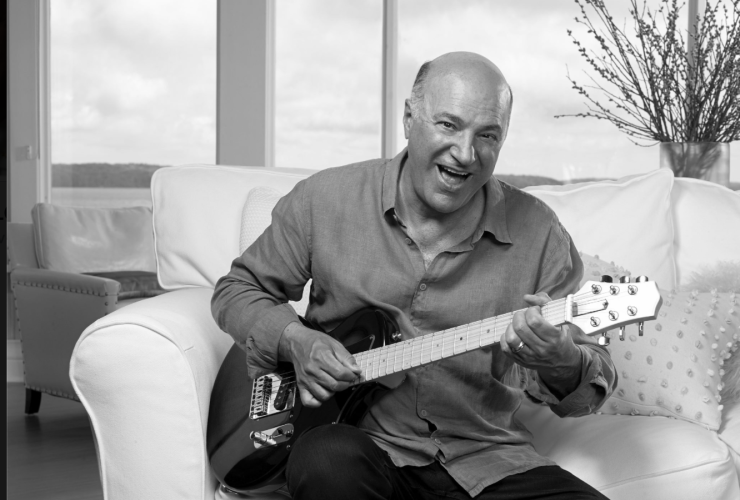Celebrity investor and reality-TV star Kevin O'Leary is quitting the federal Conservative leadership race and throwing his support behind Quebec rival Maxime Bernier.
The Canadian Press confirmed O'Leary is making the announcement later today, with few hours to spare before the remaining candidates face off in a final debate showdown before next month's vote.
Bernier, for his part, has scheduled a news conference in Toronto, to address this latest development. Last month, he called O'Leary "a loser" after the celebrity businessman reportedly accused his campaign of trying to buy its way to the top by signing up "fake"party members without their knowledge.
O'Leary was widely seen as the front-runner in the race, but he doesn't believe he will be able to win a federal election because of a lack of support in Quebec. A lack of facility with French was always considered one of O'Leary's greatest liabilities.
As for assets, O'Leary had plenty: instant recognition, thanks to years of television exposure; a public image as a savvy financial manager; and a brash, no-nonsense, outsider approach that echoed the unlikely ascent of U.S. President Donald Trump.
He promised to talk up the Canadian economy and trade in a way he complained the current Liberal government under Prime Minister Justin Trudeau had failed to do.
"If Trudeau isn’t beaten in the next election, he will leave the next generation of Canadians, those thousands of millennials I’ve been talking about, with a mountain of debt and high taxes. This cannot be allowed to happen," O’Leary said Wednesday.
"The Conservative party needs someone who has the best chance of beating Trudeau. Someone who will command the support of Canadians from every region of the country and who can build a consensus among all members of the party."
O'Leary decided to run just before Christmas, when the federal Finance Department issued a report predicting budget shortfalls until at least 2051, with debt levels exceeding $1.55 trillion.
The thought of his two adult children buried by that kind of debt was unthinkable, O'Leary said at the time. His plan was to target voters in the 18-to-35 demographic and convince them to first join the Conservative party, and then to back him in 2019 for prime minister.
Prior to Wednesday, O’Leary had offered no hint that he was considering dropping out. Three hours before announcing the decision, he sent out a fundraising letter to his supporters.
His exit from the race, however, adds weight to a prediction made by political commentator Duff Conacher to National Observer in January. When O'Leary entered the race, Conacher said he may throw his support at the last minute behind a candidate he believes is more likely to win.
The end game, said Conacher, would be to influence the final party platform in 2019.
"I’ve always said this right from the very beginning, that this leadership race is going to be a very serious fight between the progressive conservatives and the right of the party," the Democracy Watch co-founder told National Observer. "(O'Leary) can play a role of helping decide in the end who wins and influence their platform by making his support conditional on certain promises."
It's unclear what shape O'Leary's support for Bernier will take, but the party has already started mailing ballots to party members, and O’Leary’s name is included. His campaign claims to have signed up just over 35,000 people, and there’s no guarantee any or all will agree to back Bernier.
The winner will be announced May 27.
— with files from Elizabeth McSheffrey





Comments